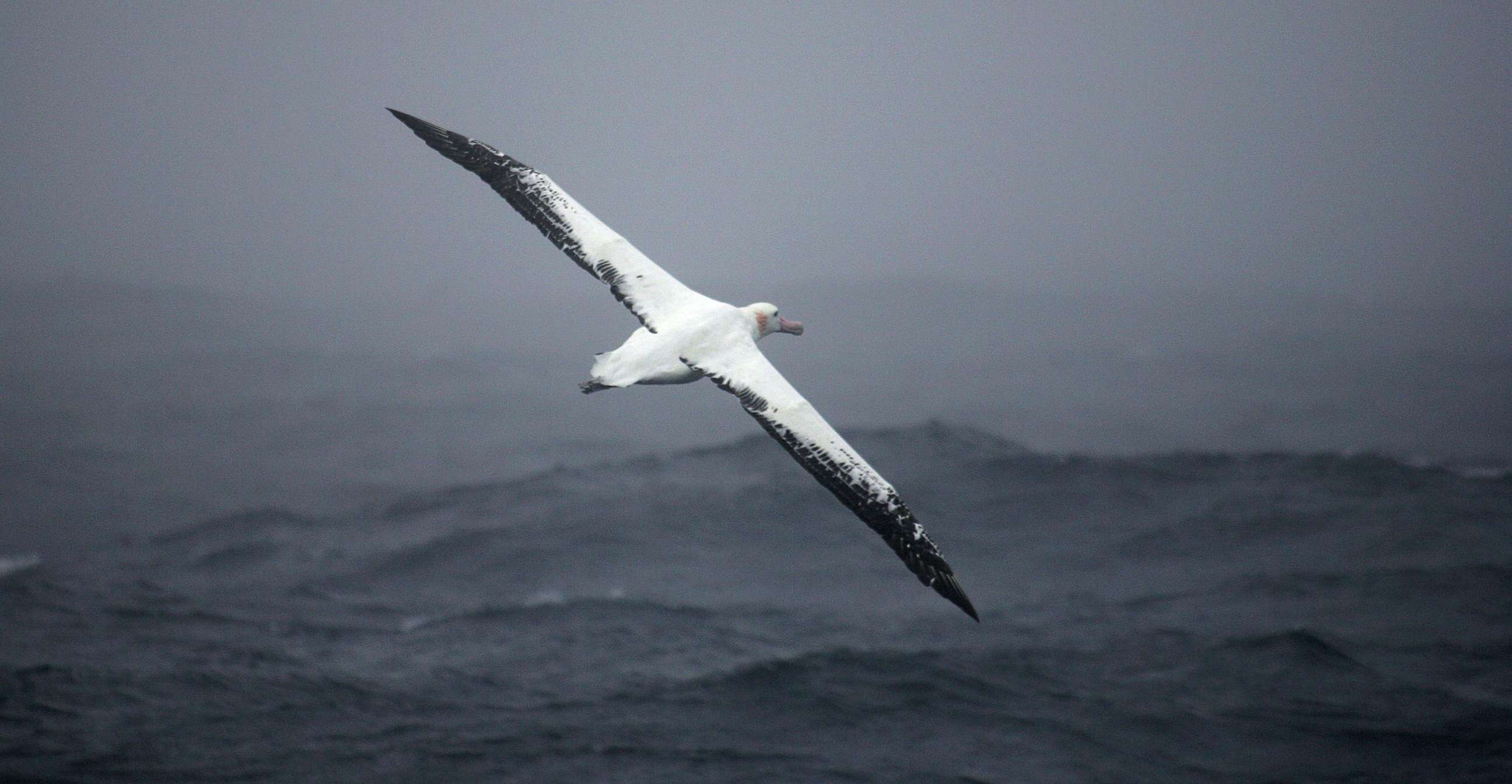Giant seabirds fitted with tracking devices may patrol ocean for illegal fishing
The devices were attached to albatrosses, who could then locate vessels.
Giant seabirds may soon patrol parts of the Southern Ocean near New Zealand with technology that can detect illegal fishing.
Conservationists have been working to curb the threat of illegal fishing, and a study published Monday details the possibility of using Albatrosses fitted with tracking devices to do so.
Albatrosses are birds that live mainly in the Southern Hemisphere and are known for their large wingspan, which can reach 11 feet.
The tracking devices on the birds could detect the presence of vessels, locate them and then send the information to authorities, who can estimate which ones are non-declared fishing vessels in the national and international waters of the Southern Ocean, according to the study published in the Proceedings of the National Academy of Sciences, a U.S. science journal.

The study notes that surveilling fisheries is "complex and inadequate," making it even more difficult to detect the "persistently problematic" illegal fisheries.
Global losses from illegal fishing are estimated to cost $36.4 billion each year, according to the World Wildlife Fund. Illegal fishing is also a key driver of overfishing, a problem that threatens marine ecosystems, puts food security at risk and is linked to human rights violations, the WWF reports.
"Innovative ways to monitor the oceans are urgently required," according to the eight authors of the study, all of whom have conducted research in conservation.
Some albatrosses tested the tracking devices and were able to detect that more than one-third of the vessels in international waters did not have an Automatic Identification System, which is required on vessels of 300 gross tons or more that travel internationally.
The albatrosses fitted with the tracking device were attracted to fishing vessels more so than other vessels.
The authors said their study showed the possibility of implementing conservation policies by using "wide-ranging seabirds to patrol oceans."




